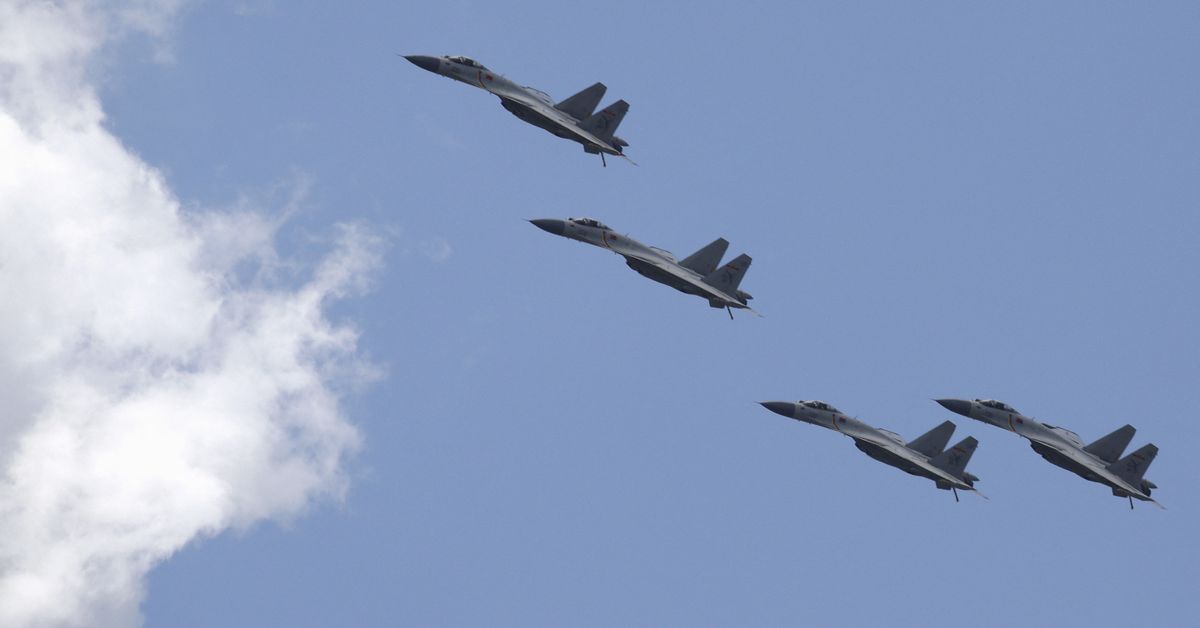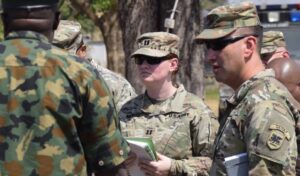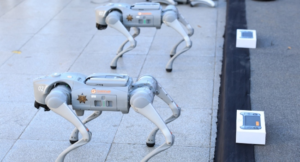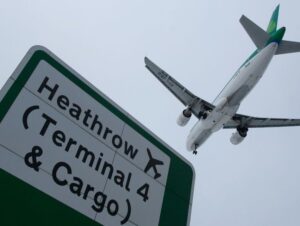
China’s military has been flexing its muscles this week around Taiwan practicing joint force operations far out at sea, ahead of Taipei holding its annual war games at the end of the month when Taiwan will simulate breaking a Chinese blockade.
China, which views democratically governed Taiwan as its territory, has been staging regular exercises around the island for the past three years, to pressure Taipei to accept Beijing’s claim of sovereignty.
Since Tuesday, China has sent dozens of fighters, bombers and other aircraft including drones into the skies to Taiwan’s south, some crossing the Bashi Channel which separates Taiwan from the Philippines and into the Pacific, accompanying Chinese warships, Taiwan’s defence ministry said.
Some of the aircraft crossed the Taiwan Strait median line, an unofficial buffer that separates the two sides, and came near waters 24 nautical miles off Taiwan’s shores, the island’s contiguous zone, in what Taiwan security officials called “harassment”.
Chieh Chung, a military researcher at Taiwan’s National Policy Foundation think tank, said practicing long-distance missions was important for China as they would be the “main combat mode” in any conflict.
“China regards breaking through the first island chain as an important tactical goal,” he said, referring to the islands running from Japan through Taiwan, the Philippines and on to Borneo, enclosing China’s coastal seas.
China’s defence ministry did not respond to a request for comment. On Thursday, China’s foreign ministry, asked about the drills, said: “The Chinese people will never waver in our resolve and determination to uphold China’s sovereignty and territorial integrity”.
Taiwan’s main annual Han Kuang exercises take place in the last week of this month, focusing on defending the island’s main international airport and how to keep sea lanes open in the event of a Chinese blockade.
China practised precision strikes and blockades in drills around the island in April after Taiwan President Tsai Ing-wen met U.S. House of Representatives Speaker Kevin McCarthy in Los Angeles.
A senior Taiwan security official, who declined to be identified, said China’s activities, coming before Han Kuang, were part of its psychological warfare against the island.
“They are expanding military deterrence actions to create a cognitive effect that Taiwan’s national defences are useless,” the official said.
Chinese President Xi Jinping visited the headquarters of the Eastern Theatre Command, which is in charge of the area around Taiwan, on July 6, and warned of a “new period of turmoil and change for the world”, state media reported.
Adding to a sense of tension, on Thursday a U.S. Navy patrol plane flew through the strait, monitored by Chinese jets. China routinely denounces U.S. military activity in the strait as provocation.
Taiwan’s military has been on its own publicity push about the Han Kuang drills, this week releasing a slickly produced video on social media of fighters soaring into the skies, missiles fired from warships and artillery barrages.
“We are determined to protect our territory,” read text in Chinese and English accompanying the video.
Su Tzu-yun, a research fellow at Taiwan’s top military think tank, the Institute for National Defence and Security Research, said judging by the aircraft used, the Southern Theatre Command, which covers the South China Sea, was being included in China’s exercises this time to gain experience in joint operations across commands.
“The Eastern Theatre Command are well seasoned, but it’s the Southern Theatre Command that needs training for long-distance support,” Su said.







